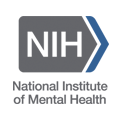Women and Mental Health
Overview
Mental disorders can affect women and men differently. Some disorders are more common in women such as depression and anxiety. There are also certain types of disorders that are unique to women. For example, some women may experience symptoms of mental disorders at times of hormone change, such as perinatal depression, premenstrual dysphoric disorder, and perimenopause-related depression. When it comes to other mental disorders such as schizophrenia and bipolar disorder, research has not found differences in the rates at which men and women experience these illnesses. But women may experience these illnesses differently – certain symptoms may be more common in women than in men, and the course of the illness can be affected by the sex of the individual. Researchers are only now beginning to tease apart the various biological and psychosocial factors that may impact the mental health of both women and men.
Latest News
- Media Advisory: NIMH Experts Available to Discuss Mental Health Concerns Related to the Coronavirus (COVID-19) Pandemic
-
• Media Advisory
Experts from the National Institute of Mental Health (NIMH) are available to speak on a variety of topics related to mental health and the coronavirus pandemic, such as the effects of the pandemic and isolation on those with and without mental illnesses; healthy ways to deal with stress, anxiety, and loneliness; how to talk with children and teens about the coronavirus; and how people can find mental health help and support if they need it.
- Bench-to-Bedside: NIMH Research Leading to Brexanolone, First-Ever Drug Specifically for Postpartum Depression
-
• Media Advisory
FDA approval of the postpartum depression treatment brexanolone represents the final phase of a bench-to-bedside journey for this drug — a journey that began in the NIMH Intramural Research Program. NIMH experts are available to provide information on postpartum depression and the importance of, and the science underlying, this new drug.
- Inflammation in Pregnant Moms Linked to Child’s Brain Development
-
• Science Update
High levels of maternal inflammation during pregnancy have been linked to effects in children, including reduced brain circuit communications and altered long-distance brain wiring at birth, poorer cognitive function at one year – and to reduced impulse control and working memory at two years.



Featured Videos
Postpartum Depression
This video provides patient testimony and information on the signs and symptoms of postpartum depression and reinforces the importance of seeking help and treatment from a health professional.
Premenstrual Dysphoric Disorder Linked to Gene Network
This video describes research on the underlying molecular mechanisms on woman’s susceptibility to disabling irritability, sadness, and anxiety in the days leading up to her menstrual period.
Mental Health Minute: Eating Disorders
Got 60 seconds? Take a mental health minute to learn about eating disorders.







